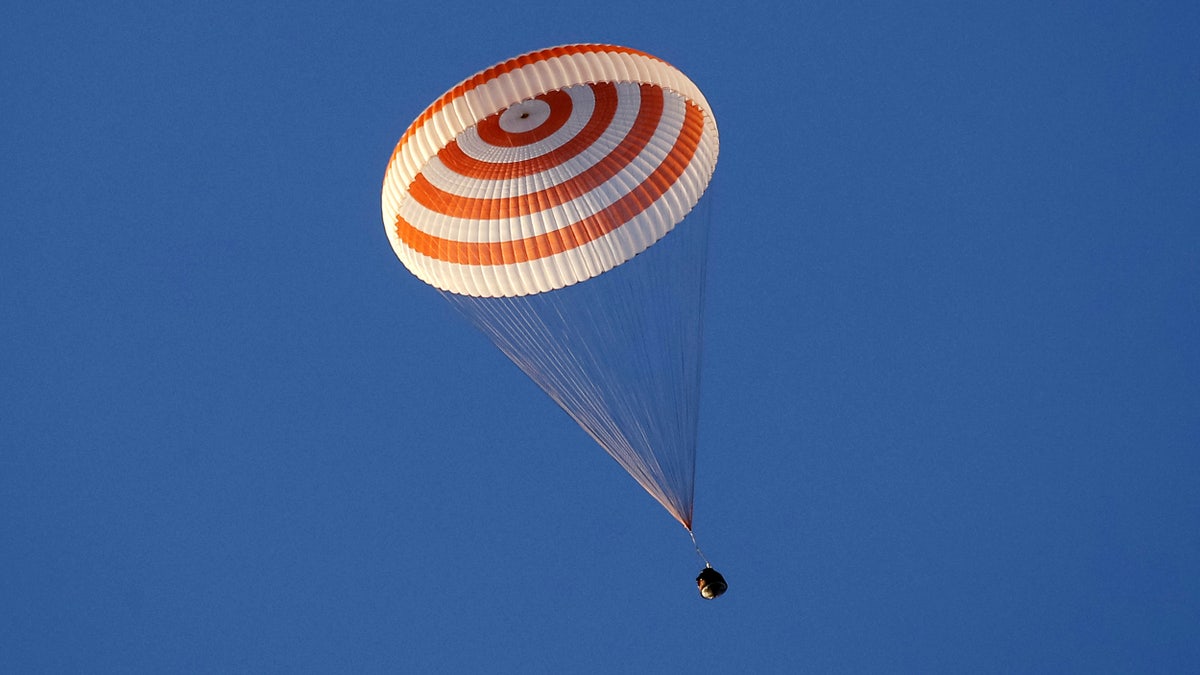
File photo: The Soyuz spacecraft capsule carrying ISS crew descends in Kazakhstan, September 7, 2016. (REUTERS/Maxim Shipenkov/Pool)
Living in space might be an adventure, but it can also be bad for your back.
Interesting things happen in microgravity— for example, spending a long time in space can make people taller by about two inches, according to a new study. That same study analyzed astronauts’ back muscles before and after they spent months on the International Space Station, and found that the muscles atrophied while in space.
The researchers studied six astronauts— five men and one woman. They did MRI scans of their backs at a facility in Texas before they went to space, and then again very soon after they returned to Earth, and then again later, on average a month and a half after touchdown.
“The MRI scans indicated significant atrophy of the paraspinal lean muscle mass —which plays a critical role in spinal support and movement—during the astronauts’ time in space,” a statement announcing the new research said. The follow-up scans in the month or two after showed that the astronauts had not made up for all that atrophy.
RELATED: Astronauts going to Mars could face brain damage, study warns
One solution? Yoga, which is a “promising exercise countermeasure,” according to the study.
“Back pain is a part of life,” the researchers reflect in the study, which points out that astronauts are more prone to herniated discs after they return to Earth. Published in the journal Spine, the study says that this is something to keep in mind, as back injuries could affect astronaut performance once they arrive at “a planetary destination such as Mars after a long space flight.”
Back pain is not the only health concern astronauts on a long-distance space flight to a place like Mars might face. Another recent study (this one used rodents) found that the cosmic radiation that space travelers are exposed to once they are outside of Earth’s magnetosphere could cause brain damage.
Follow Rob Verger on Twitter: @robverger








































